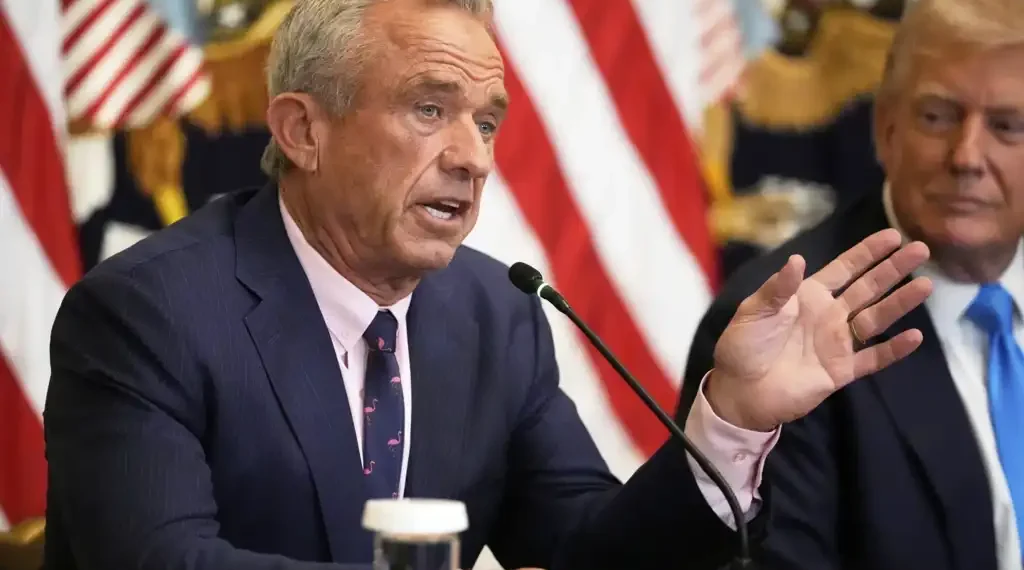RFK Jr. Pulls $500 Million in Funding for mRNA Vaccine Development
Published Time: August 6, 2025, 14:30 (U.S. Eastern Time)
The Department of Health and Human Services (HHS) will end funding for more than 20 vaccine projects aimed at combating respiratory viruses, marking a major policy shift under Health Secretary Robert F. Kennedy Jr. The decision, announced Tuesday, halts $500 million in mRNA vaccine research and development, sparking widespread criticism from infectious disease experts who warn it could hinder future pandemic preparedness.
Funding Cuts Affect 22 mRNA Vaccine Projects
In a statement, Kennedy confirmed that 22 ongoing projects, including those led by major pharmaceutical companies such as Pfizer and Moderna, will be terminated. These programs focused on developing vaccines for illnesses like COVID-19, seasonal flu, and emerging threats such as H5N1 avian influenza.
Kennedy, a long-standing critic of vaccines, said the department will instead prioritize “safer, broader vaccine strategies,” including whole-virus vaccines and new platforms less susceptible to viral mutations.
“To replace the troubled mRNA programs, we’re prioritizing the development of safer, broader vaccine strategies, like whole-virus vaccines and novel platforms that don’t collapse when viruses mutate,” Kennedy stated in a video posted on his social media channels.
Experts Warn of Public Health Risks
Public health specialists have voiced strong opposition, arguing that mRNA technology has been instrumental in saving lives during the COVID-19 pandemic and could be critical in addressing future outbreaks.
Mike Osterholm, an infectious disease expert at the University of Minnesota, called the decision “the most dangerous in public health in my 50 years in the business,” warning that the removal of mRNA tools will make it harder to respond rapidly to emerging diseases.
Dr. Paul Offit of the Children’s Hospital of Philadelphia emphasized that mRNA vaccines “have certainly saved millions of lives” and cautioned against abandoning a proven and adaptable platform.
The Role of mRNA Technology in Modern Medicine
mRNA vaccines work by delivering a genetic blueprint that instructs the body to produce a harmless piece of a virus, prompting an immune response. Unlike traditional vaccine production, which often requires cultivating viruses in eggs or cell cultures, mRNA vaccines can be developed and manufactured much faster — a key advantage during fast-moving outbreaks.
Beyond infectious diseases, researchers are exploring mRNA for cancer immunotherapy and other medical applications. Billionaire tech entrepreneur Larry Ellison recently praised its potential in oncology treatments during a White House event.
Shift in Vaccine Development Priorities
HHS clarified that the decision impacts only vaccine projects for respiratory viruses and does not affect other mRNA research underway within the department. Moderna, for instance, had been developing a combined COVID-19 and flu mRNA shot, which it said could speed production compared to traditional vaccines.
In its statement, HHS described the move as a “shift in vaccine development priorities” and pledged to invest in “better solutions” moving forward. Kennedy reiterated that the department still supports “safe, effective vaccines for every American who wants them.”
Alternative Vaccine Strategies Under Development
Speaking at a news conference in Anchorage, Alaska, alongside Republican Senators Lisa Murkowski and Dan Sullivan, Kennedy announced that the administration is pursuing a “universal vaccine” designed to mimic natural immunity.
“It could be effective — we believe it’s going to be effective — against not only coronaviruses, but also flu,” Kennedy said.
According to Kennedy, this universal approach could offer broad-spectrum protection against multiple respiratory viruses, though no such vaccine has yet been approved for public use.
Potential Impact on Pandemic Preparedness
Infectious disease experts warn that eliminating mRNA research could weaken the U.S.’s ability to respond quickly to future pandemics, especially as concerns over bird flu outbreaks continue. The speed and adaptability of mRNA platforms, they argue, have been unmatched in modern vaccine development.
With funding for 22 projects now halted, pharmaceutical companies and research institutions face uncertainty about the future of their programs. Meanwhile, HHS says it remains committed to advancing alternative technologies that align with the administration’s new priorities.
This article was rewritten by JournosNews.com based on verified reporting from trusted sources. The content has been independently reviewed, fact-checked, and edited for accuracy, neutrality, tone, and global readability in accordance with Google News and AdSense standards.
All opinions, quotes, or statements from contributors, experts, or sourced organizations do not necessarily reflect the views of JournosNews.com. JournosNews.com maintains full editorial independence from any external funders, sponsors, or organizations.
Stay informed with JournosNews.com — your trusted source for verified global reporting and in-depth analysis. Follow us on Google News, BlueSky, and X for real-time updates.














